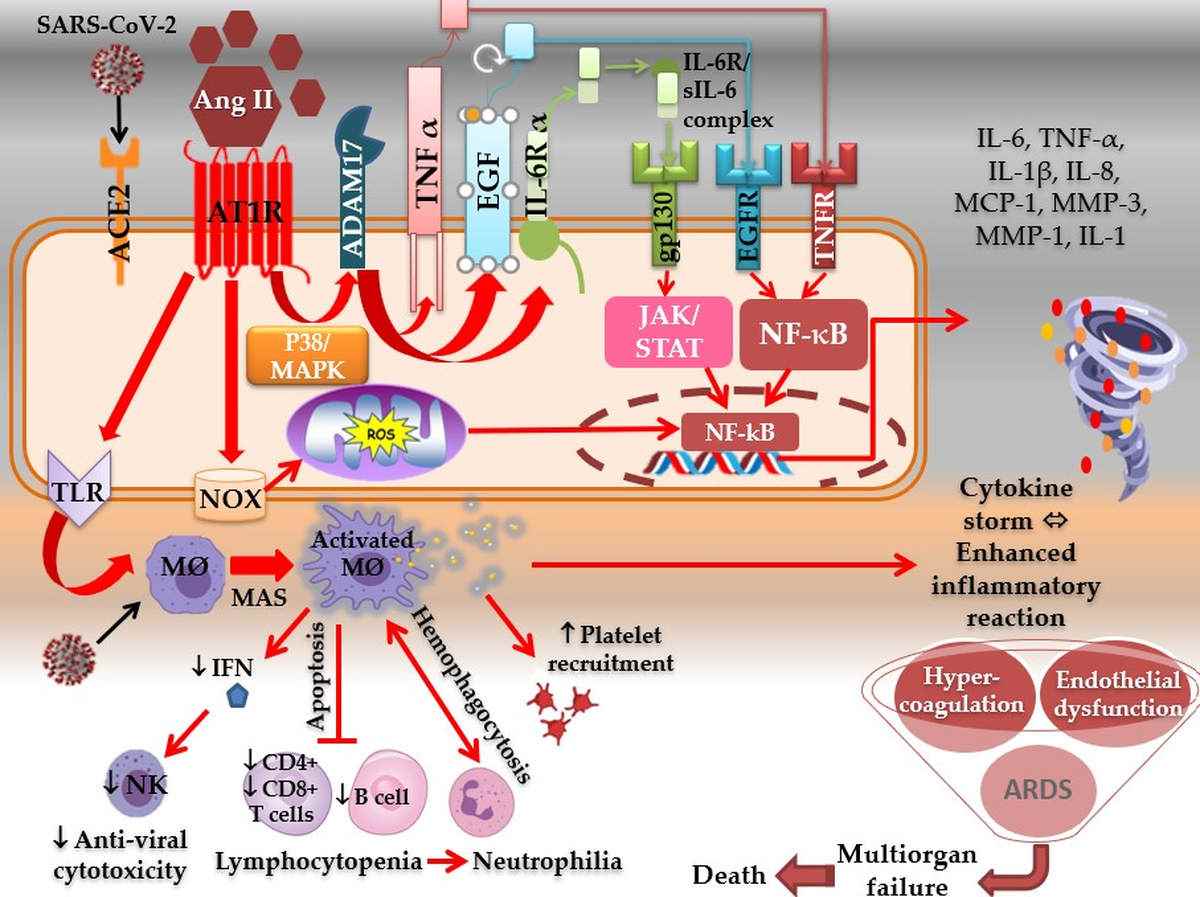Doctors and scientists still do not fully understand the mechanisms of SARS-CoV-2 infection. They are complex, as can be seen on this brand new diagram commented here by Jean-Marc Sabatier.
By Jean-Marc Sabatier
The diagram below describes the mode of action of the SARS-CoV-2 virus responsible for Covid-19 diseases on the cells of our body. The binding of the virus to its cellular receptor (ACE2) hinders the degradation of a hormone (angiotensin 2 or ANG II). The ANG II hormone targets another cellular receptor called AT1R and, therefore, will overactivate it.
This AT1R receptor, which is essential to the functioning of the human body, becomes deleterious when it is over-stimulated. This receptor is one of the most complex human receptors and is capable of activating many metabolic pathways in the cell. Since this receptor is present in the cells of many organs and tissues (brain, heart, lungs, liver, kidneys, spleen, pancreas, blood vessels, intestines, adrenal glands, skin, reproductive organs, etc.), its over-activation will potentially produce various undesirable effects on the body. In other words, it can cause many symptoms and pathologies in our body.
Major dysfunctions
The AT1R receptor, overactivated by ANG II, has a hypertensive effect (causing vasoconstriction of blood vessels), pro-inflammatory (causing a cytokine storm, deleterious to cells), pro-thrombotic (inducing the formation of blood clots), pro-oxidant (causing cell death) pro-angiogenic (promotes the appearance of tumors or the aggravation of pre-existing cancers), pro-fibrosing (promotes the deleterious fibrosis of organs), pro-hypertrophying (promotes the undesirable enlargement of organs) and reduces NO (nitric oxide), which is important in immune, inflammatory and memory processes.
In other words, the AT1R receptor causes a major dysfunction of the immune system which has deleterious repercussions in cascade on our organism as shown in the diagram.
Depending on the individual, the over-activation of the AT1R receptor causes more or less serious disturbances that can lead to the death of the patient.
Figure taken from the article “The Door to Covid-19”.
* Jean-Marc Sabatier is a research director at the CNRS and holds a PhD in Cell Biology and Microbiology, affiliated with the Institute of Neuro Physiopathology (INP), at the University of Aix-Marseille.

